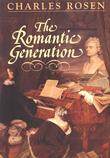Liszt, Franz
Period: Romantic
Born: Tuesday, October 22, 1811 in Doborjan, Hungary
Died: Saturday, July 31, 1886 in Bayreuth, Germany
Nation of Origin: Hungary
Major Works:
Hungarian Rhapsodies, for piano (1846-1885)
Les Préludes, symphonic poem (1848)
Liebesträume (1850)
Listz was a prolific composer of symphonic works, chamber music, sacred and secular choral works, piano music, organ music, and songs. Listz also did musicians a great service by transcribing numerous great orchestral works for piano. These include Beethoven's symphonies 5, 6, and 7 and Berlioz's Symphonie Fantastique.
Other Information:
Please note: Liszt's birthplace of Doborjan, Hungary is now known as Raiding, Austria. After World War I, Hungary lost two-thirds of its territory and 60% of its population as the result of the Trianon Treaty of 1920. In a recent article, entitled "Bad Treaty That Won't Go Away," concert pianist Dr. Balint Vazsonyi wrote "Of Hungary's four greatest composers, all born in Hungary of course, only Zoltan Kodaly's birthplace remains [in Hungary]. On today's maps, it appears as if Franz Liszt had been born in Austria,Erno Dohnanyi in Slovakia, and Bela Bartok in Romania. On Bartok's birthday, the Hungarian delegation, wishing to lay a wreath, was turned back at the Romanian border." Many thanks to D.K. Bognar, editor of Hungarians in America, for contributing the valuable information above.
Liszt was known as a virtuoso pianist, child prodigy, and composer of keyboard and orchestral works.
Quick Facts:
- At 9 years of age he gave his first piano recital.
- Studied in 1821 with Salieri and Czerny in Vienna.
- He performed in Paris in 1823 and in London in 1824.
- Resided in Paris 1823 to 1835. He was friends with Chopin and Berlioz.
- He was known as a ladies man. He had affairs with women of the aristocracy.
- He became friends with Wagner in 1842. He toured widely until 1847.
- From 1848 to 1859 he was Kapellmeister at the Weimar court. He promoted and performed his own works and the works of Wagner among others.
- From 1860 he maintained a residence in Rome.
- He became Abbé Liszt (a minor religious title) in 1865.
- After 1869 he worked in Rome, Weimar, and Budapest at various times.
- His compositions after 1880 show substantial innovations in harmonic practice which foreshadowed the impressionism of Debussy.
- He celebrated his 75th birthday with a 'jubiliee' tour of Paris and London.
General Bibliography:
Blume, Friedrich, with Norton, M. D. (Translator) and Norton, Herter (Translator), Classic and Romantic Music; A Comprehensive Survey, W. W. Norton & Company, November 1970, ISBN: 0393098680
Einstein, Alfred. Music in the Romantic Era, W. W. Norton & Company, December 1947, ISBN: 0393097331
Rosen, Charles, The Romantic Generation, W. W. Norton & Company, April 1995, ISBN: 0674779347
Slonimsky, Nicolas and Kuhn, Laura; Editors, Baker's Biographical Dictionary of Musicians, Gale Group, December 2000, ISBN: 0028655257
Sadie, Stanley and Tyrrell, John; Editors, The New Grove Dictionary of Music and Musicians, Groves Dictionaries, Inc., January 2004, ISBN: 0195170679
Rutherford-Johnson, Tim, Kennedy, Michael, and Kennedy, Joyce The Oxford Dictionary of Music, Oxford University Press, 6th Edition, 2012, ISBN: 0199578109
Links to essays at other sites:
Please note: Each link will open in a new window.
Biographical essay from Wikipedia
